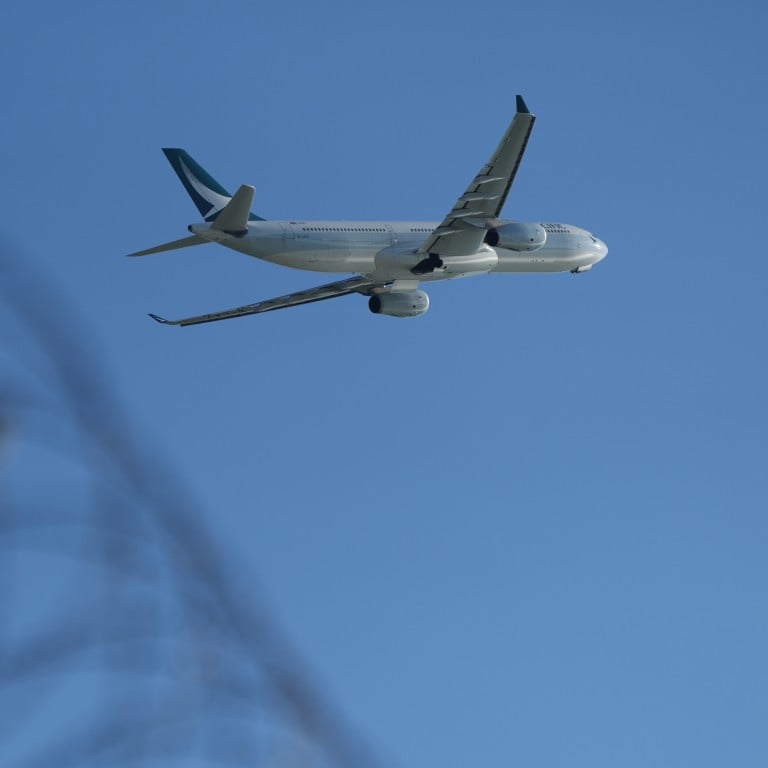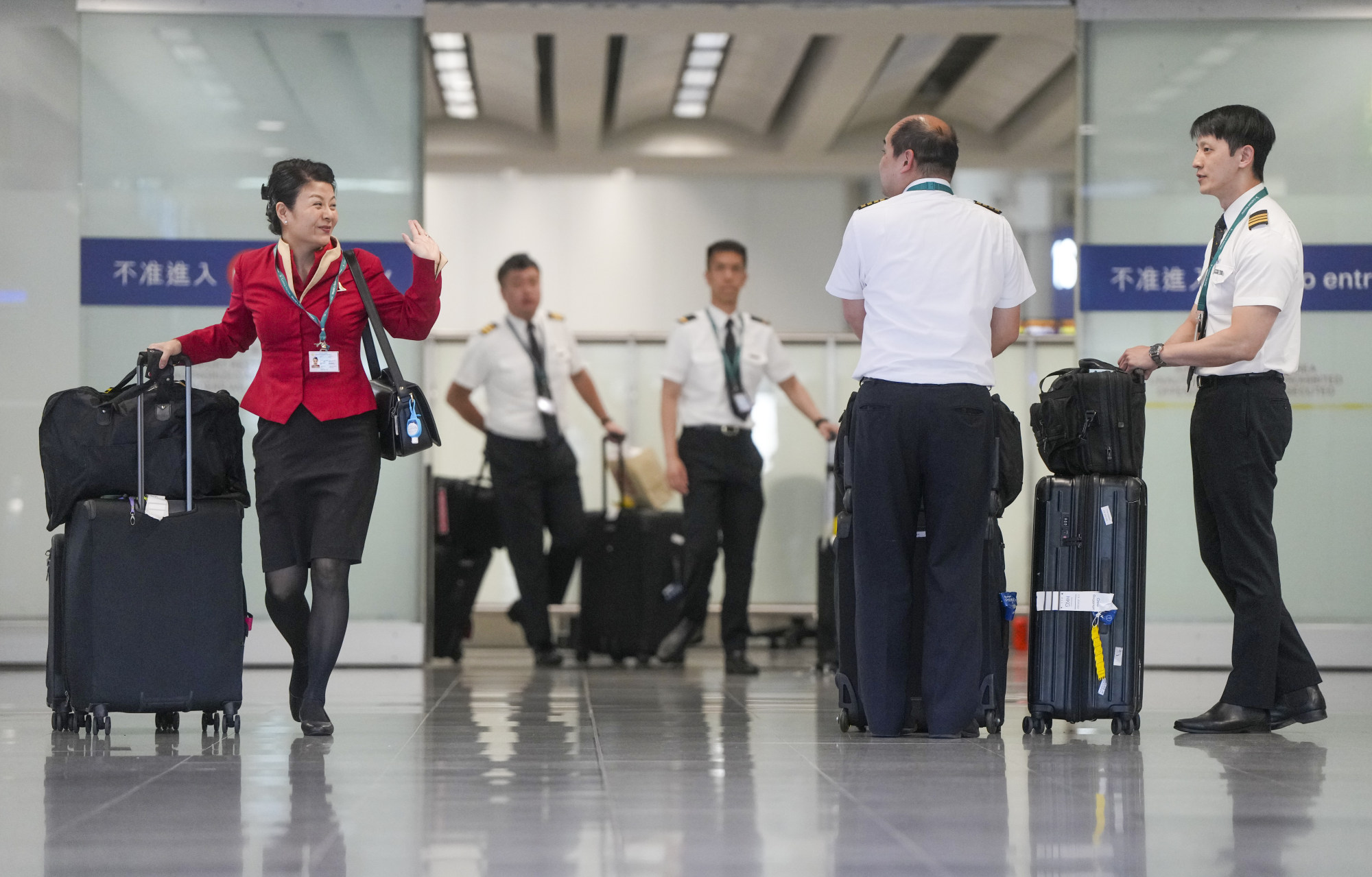
Hong Kong’s Cathay Pacific Airways promises to shake up roster system to improve pilots’ pay
- New pay structure will ensure pilots facing company-initiated shortfall in hours will get assigned other duties ‘wherever possible’ to make up for reduction
- ‘We remain committed to engaging with our people to listen to their views, and making changes wherever it is viable and sustainable,’ director of flight operations says
Hong Kong’s Cathay Pacific Airways has promised to improve pilots’ pay in another concession to disgruntled cockpit crew, a month after the city’s flag carrier posted its first half-year profit in three years.
The airline announced on Thursday it would introduce a new allowance for pilots from January to help reduce the impact of the company’s rostering system.
Captain Chris Kempis, Cathay’s director of flight operations, said the move would give pilots “further stability” when it came to pay.
“We remain committed to engaging with our people to listen to their views, and making changes wherever it is viable and sustainable to do so,” he said.
Hong Kong’s Cathay to add flights to mainland, passenger numbers hit 11 million
Under the new pay structure, pilots facing reduced hours due to company-initiated roster changes, such as flight cancellations, delays or training flight replacements, will be assigned new duties “wherever possible” to help make up for the change.
Pilots would be given compensation of up to 50 per cent for the shortfall in hours if the reduction could not be sorted within a month, Cathay said.
The remuneration for Cathay pilots consists of a basic salary, a monthly allowance and productivity pay, with the latter tied to the number of hours flown.
An entry-level second officer’s annual basic salary stood at HK$394,884 (US$50,470), while top-tier captains receive up to HK$1.3 million a year.
They also receive productivity pay of up to 30 per cent of their salary, on top of their basic salary, as well as a monthly allowance tied to their rank.

In an earlier Post report, some pilots had said volatile pay was among their biggest grievances as the highest earners were those who spent more time flying.
But changes to rosters, weather events or pilots taking leave resulted in reduced monthly salaries, they said.
In October 2020, Cathay expanded its cheaper employment contracts to cover all cabin crew and pilots, reducing the latter’s pay by about 40 per cent, as well as cutting retirement and housing benefits.
The Hong Kong Aircrew Officers Association, which represents about half of Cathay’s pilots, last month said those back in the cockpit were facing a 25 per cent pay reduction.
Hong Kong’s Cathay lines up 600 mainlanders to compete for 300 cabin crew jobs
Cathay at the time reported a net profit of HK$4.26 billion for the first half of 2023, after suffering losses of HK$33.7 billion for three years amid the Covid-19 pandemic.
The airline opted to improve monthly salaries by 3.3 per cent in January, later increasing pilot allowances for certain ranks and offer each employee a bonus worth up to six weeks’ pay in September.
Cathay in June said pilots’ productivity pay from October would be calculated based on either their hours allocated by roster or the actual time spent in the air, depending on which was higher.
Morale among Cathay staff took a hit during the pandemic, when the carrier laid off thousands of employees and slashed salaries as part of cost-cutting measures.
It took a further dive in May after three crew members were sacked for insulting the English-speaking abilities of some mainland Chinese passengers on a flight to Hong Kong.
Earnings at Hong Kong’s Cathay soar to HK$4.3 billion in first half of 2023
In April, Cathay warned against slow taxiing of aircraft after some of its pilots allegedly used the practice to clock extra time and collect more pay. Authorities at the time accused the pilots of contributing to congestion at Hong Kong’s airport.
The company had said the carrier and its budget arm HK Express were now almost at 60 per cent of pre-pandemic capacity levels for passenger flights.
It aimed to reach 70 per cent by the end of the year, before hitting 100 per cent by the end of 2024, it added.
Union chairman Paul Weatherilt said the latest move was a “small step in the right direction”.
But he added: “Cathay are offering to replace only half of this volatility. As such, this will have little affect on morale.”
Weatherilt explained that pilots had a guaranteed number of monthly hours, as well as an annual target set by the airline. But cutting extra hours caused “a huge impact on that month’s pay”, he said.

